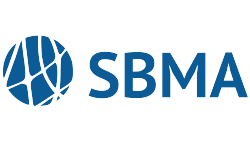Under the CARES Act, the Secretary of the Department of Health and Human Services was instructed to write payments under the Inpatient Prospective Payment System by 20% for Medicare beneficiaries who have had COVID-19. This instruction caused many to question whether or not hospitals will partake in fraudulent claims of COVID-19. There is no evidence surrounding this speculation, but hospitals should still prepare for potential audits from both the HHS Office of Inspector General and Medicare contractors. This may also open hospitals up to liability under the False Claims Act. Read more about potential audits and False Claims lawsuits here:
Increased reimbursement for hospital stays for Medicare beneficiaries with COVID-19 diagnosis likely to lead to audits and False Claims lawsuits.
Section 3710 of the Coronavirus Aid, Relief, and Economic Security (CARES) Act directs the Secretary of the Department of Health and Human Services (HHS) to increase the weighting factor for payments under the Inpatient Prospective Payment System (IPPS) by 20 percent for Medicare beneficiaries diagnosed with COVID-19 who are discharged from the hospital during the COVID-19 public health emergency.
The CARES Act provision provides CMS with discretion on how to identify beneficiaries diagnosed with COVID-19.
However, CMS has issued Frequently Asked Questions indicating that for Medicare purposes, discharges for individuals diagnosed with COVID-19 are to be identified by the presence of one of the following ICD-10-CM codes:
Given this 20 percent increase in payment associated with the COVID-19 diagnosis for hospitalized Medicare patients, there has been speculation that this “windfall” is incentivizing fraudulent behavior. Headlines have claimed that because hospitals are getting paid more for patients if they include a COVID-19 diagnosis on the patient’s chart, and are paid even more for each COVID-19 patient on a ventilator, some hospitals are adding the COVID-19 diagnosis to the charts of patients who do not actually have COVID-19.
Gaming the system:
While there is no evidence that hospitals are fraudulently claiming that Medicare beneficiaries have COVID-19 in order to obtain the additional 20 percent payment from Medicare, fraud tends to follow the money. So, it is safe to assume that some hospitals could attempt to game the system in order to obtain the higher reimbursement associated with the COVID-19 diagnosis. Therefore, hospitals should prepare for audits by the HHS Office of Inspector General and/or various Medicare contractors to ensure that COVID-19 diagnosis codes were properly included on Medicare claims. In addition to audits, upcoded or miscoded claims that result in improper payments from the Medicare or Medicaid program will also subject hospitals to potential liability under the False Claims Act, including claims brought by whistleblowers.
Hospitals should protect themselves to help ensure that they are properly billing the Medicare and Medicaid programs and protect themselves from potential False Claims Act liability, hospitals should ensure that the COVID-19 diagnosis is being properly assigned. Hospitals may also want to provide additional education to physicians and billers/coders on the correct coding of the COVID-19 diagnosis.


